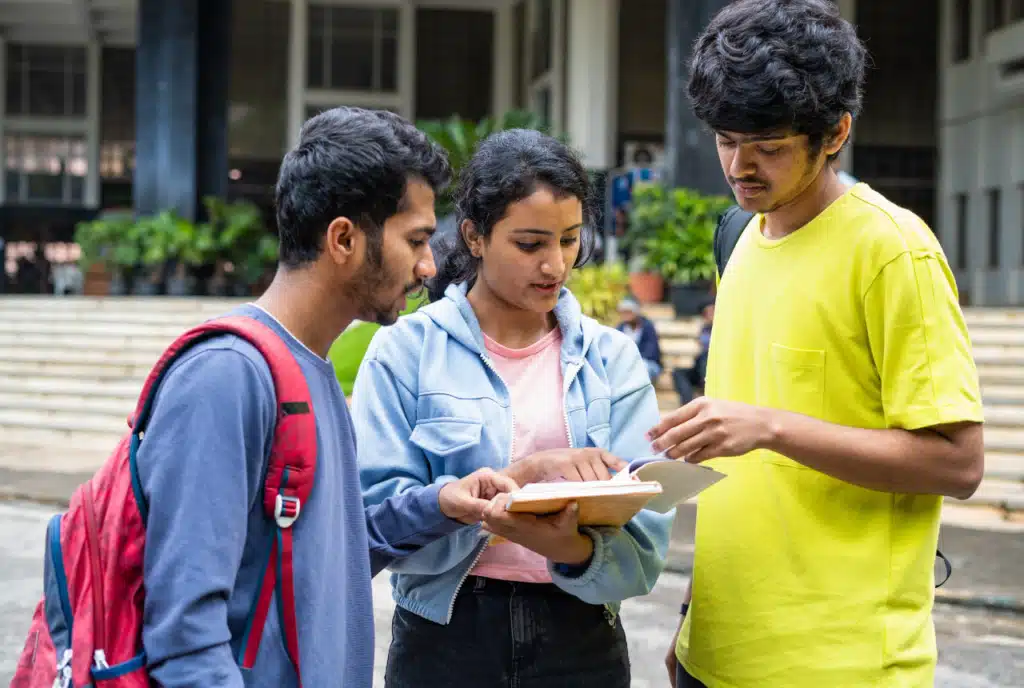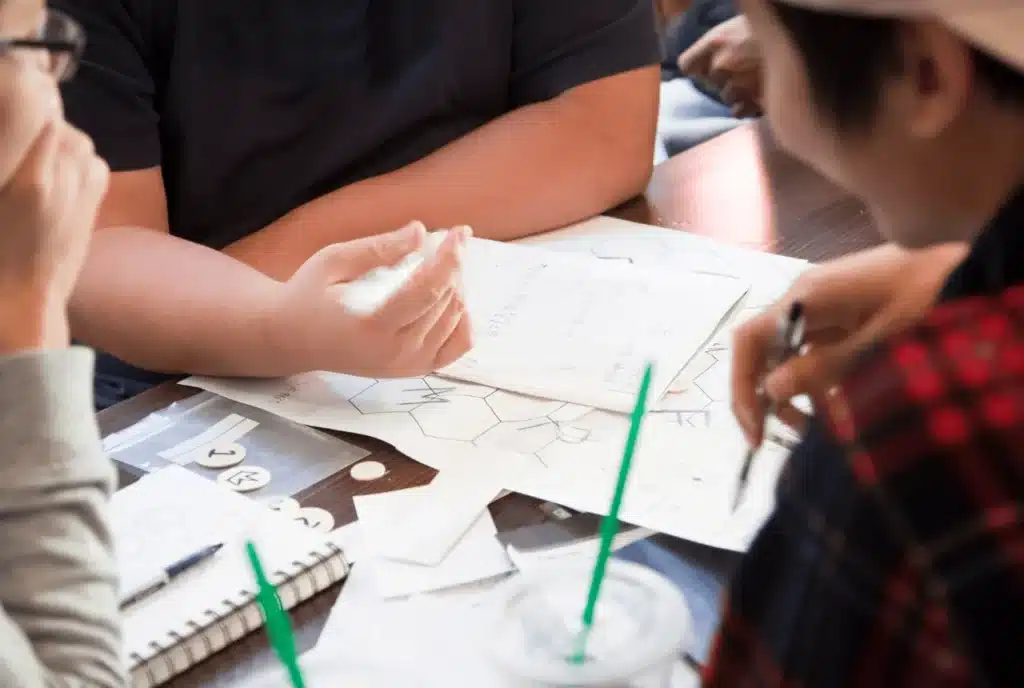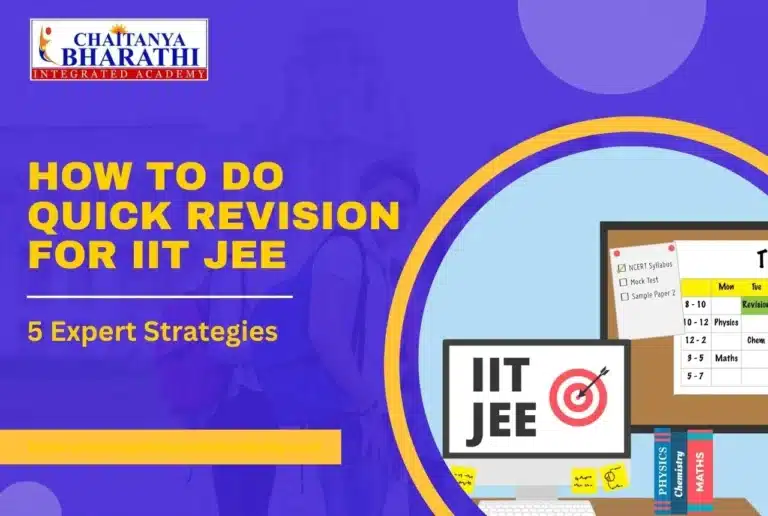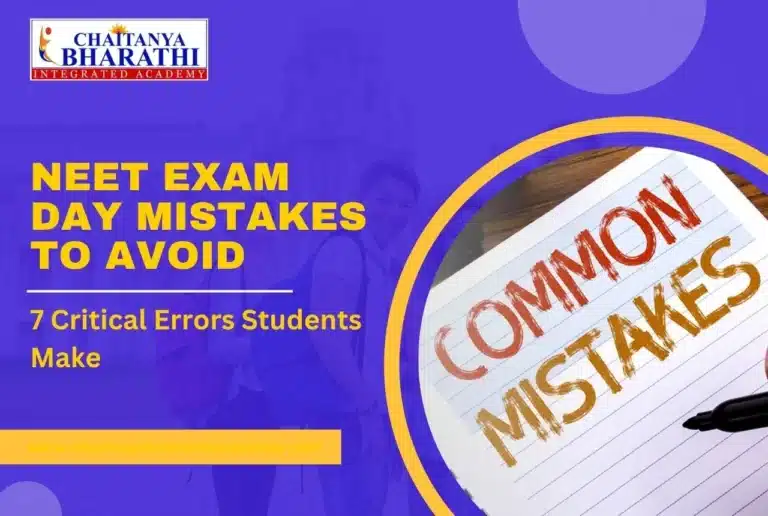The National Eligibility cum Entrance Test (NEET) is a pivotal examination for aspiring medical students in India. With its vast syllabus and competitive nature, effective preparation is essential for success. One powerful method to enhance your study routine is through group study. Collaborating with peers can significantly improve your understanding of complex topics, provide motivation, and create a supportive learning environment. In this blog, we will explore the best group study practices for NEET, ensuring that you and your study group maximize your potential.
Best Group Study Practices for NEET
Group study can be a game-changer in your NEET preparation journey. It fosters collaborative learning, allowing students to share knowledge and insights that may not be accessible through individual study alone. Here are some effective and also best group study practices for NEET that can help you get the most out of your sessions:
Establish Clear Goals and Schedules

Setting clear objectives for each study session is crucial. Without defined goals, group study can easily veer off track. Here are some tips for creating a structured timetable:
- Define Objectives: Before each session, outline what topics will be covered and what you aim to achieve.
- Create a Timetable: Develop a schedule that balances group study with individual preparation. This ensures that you cover all necessary material without feeling overwhelmed.
- Stick to the Plan: Encourage accountability among group members to stay focused on the agenda.
Balancing group sessions with individual study allows you to reinforce what you’ve learned while also benefiting from collaborative discussions.
Divide and Conquer the Syllabus

One of the most effective strategies in group study is dividing the syllabus among members. This approach not only improves efficiency but also ensures comprehensive coverage of all topics:
- Assign Topics: Each member can take responsibility for different subjects or chapters, summarizing key points and sharing notes with the group.
- Mutual Teaching: Encourage members to explain their assigned topics to others. Teaching reinforces understanding and helps clarify concepts for everyone involved.
- Share Resources: Bring different study materials to sessions, providing a variety of perspectives and insights.
This collaborative approach allows you to learn from each other while covering more ground in less time.
Practice Problem-Solving Together

Solving NEET-level questions as a group can enhance problem-solving skills and expose members to different approaches:
- Group Problem-Solving: Work on practice questions together, discussing various methods to arrive at solutions.
- Timed Mock Tests: Conduct mock tests during sessions to simulate exam conditions. This helps improve time management skills and builds confidence.
- Analyze Mistakes: After solving problems, review errors collectively. Understanding mistakes as a group fosters deeper learning and prevents similar errors in the future.
By practicing together, you not only strengthen your grasp of concepts but also build camaraderie within the group.
Foster Open Discussions and Clarifications

Creating an environment where members feel comfortable asking questions is vital for effective learning:
- Encourage Questions: Promote open communication by allowing members to voice doubts or seek clarifications on complex topics.
- Leverage Different Perspectives: Utilize the diverse backgrounds and knowledge of group members to gain new insights into challenging subjects.
- Use Visual Aids: Collaborate on diagrams, flowcharts, or mind maps during discussions. Visual aids can simplify complex information and enhance retention.
Open discussions facilitate a deeper understanding of subjects while fostering a supportive atmosphere.
Avoid Common Pitfalls in Group Study
While group study has many benefits, it’s important to be aware of potential challenges:
- Manage Distractions: Set ground rules to minimize distractions during sessions. Keep discussions focused on study topics.
- Handle Different Learning Paces: Recognize that members may have varying speeds of comprehension. Be patient and adjust the pace as needed.
- Ensure Accountability: Encourage equal participation by assigning roles or responsibilities within the group. This prevents any one member from dominating or slacking off.
By addressing these common pitfalls, you can maintain a productive study environment.
Role of Coaching Centers in Enhancing Group Study Practices

Coaching centers like Chaitanya Bharathi, a leading IIT-JEE/NEET coaching institute in Guwahati and Assam, play a significant role in supporting group study efforts. They provide resources such as structured materials, expert guidance, and additional practice questions that complement your collaborative learning experience. Utilizing these resources can enhance your group’s effectiveness and ensure you’re well-prepared for NEET.
Conclusion
Adopting effective group study practices is essential for successful NEET preparation. By establishing clear goals, dividing the syllabus, practicing problem-solving together, fostering open discussions, and avoiding common pitfalls, you can create a productive learning environment that benefits all members. Remember that combining individual effort with collaborative learning will yield optimal results. Stay consistent, disciplined, and goal-oriented as you embark on this journey toward achieving your dreams in the medical field!











